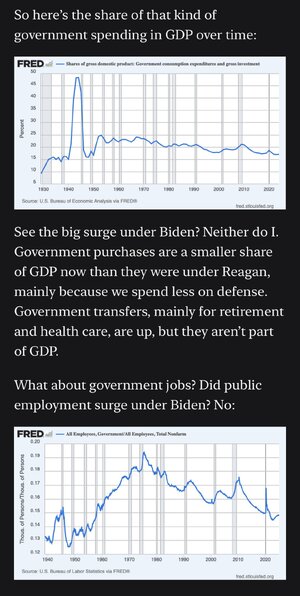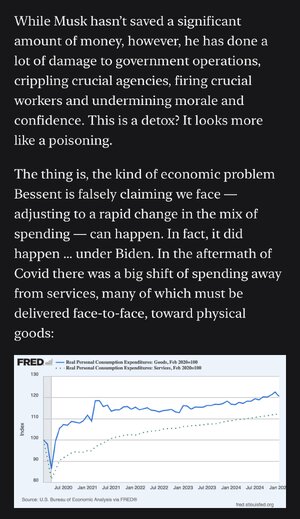I posted in January they would vanish once (and it was once, not if) Trump & Musk really screwed things up and the economy started to go down and the tariffs started to hit and all the rest of his and Elon's and his administration's crap started to really hit the fan. Some Trumper posters said here two or three weeks ago that they were just "taking a break from the board" and would return "sometime", but "sometime" seems to be drifting further and further away as the trajectory of events just keeps moving downhill, not only economically, but in pretty much every other way as well.






